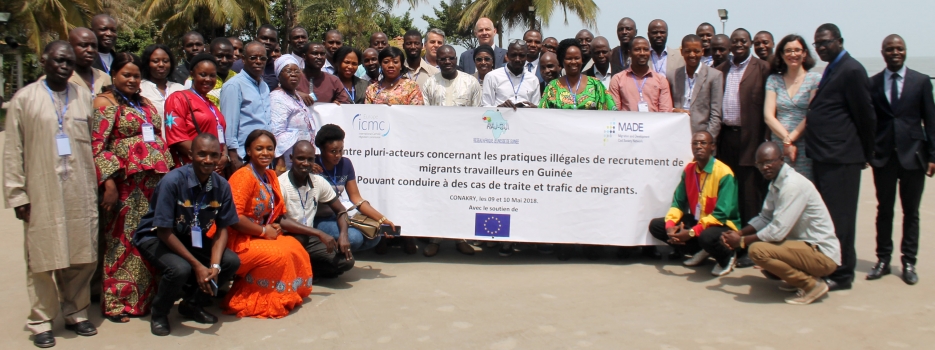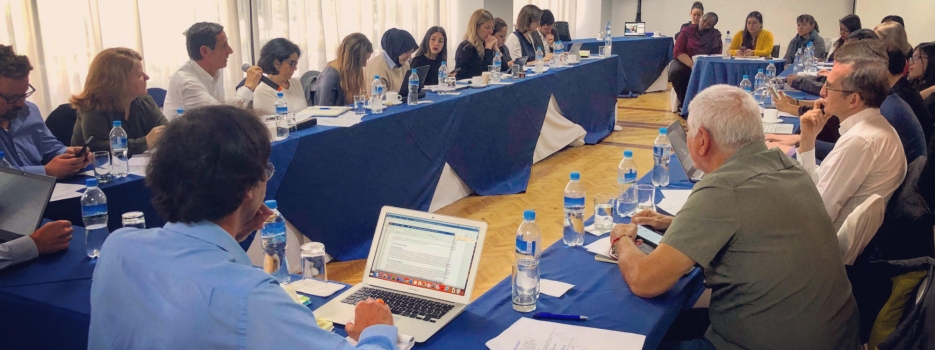10 July 2018
As the sixth and final round of negotiations on the Global Compact for Safe, Orderly, and Regular Migration (the Compact) is taking place this week in New York, members of civil society are making a strong call to all States to ensure that the final document leaves no one behind and respects the spirit of the New York Declaration for Refugees and Migrants as well as international human rights law and other international obligations.
Following an open civil society strategy meeting held in New York on Sunday, 8 July, all civil society members were invited to sign on to a statement initiated by the Civil Society Action Committee. The statement and the list of 153 signatories were presented to Member States and the Co-Facilitators of the process during an informal dialogue on Tuesday, 10 July.
The statement highlights seven areas of concern which the Compact should address now and going forward in implementation, for a successful, integral Compact:
- Regular and Irregular Status for Migrants. No distinction should be made between regular and irregular migrants in their access to fundamental human rights such as justice or labour rights, information, shelter, health-care, education, and civil registration.
- Non-Refoulement of Migrants. The principle of non-refoulement should be mentioned explicitly in the Compact, to ensure the protection of migrants whose lives would be in danger if sent back to their country of origin.
- Migrants in Vulnerable Situations. The Compact should ensure the full protection of migrants in vulnerable situations, especially victims of natural disasters and climate change.
- Right to Privacy with regard to migrants' personal information. Migrants' personal information should be prevented from being used for enforcement purposes, which leads to a restriction of migrants' access to certain social services.
- Criminalization of Migrants and those who assist them. The Compact must avoid all language that criminalizes migrants crossing an international border in search of safety or opportunity or that condones the use of deterrence strategies as migration management tools.
- Working to End Child Immigration Detention. Access to non-custodial and community-based alternatives to detention should be emphasised in the Compact.
- A Robust Implementation, Review, and Follow-Up Mechanism. The Compact needs a robust mechanism to ensure accountability, transparency, and practical progression as we move forward. Civil society asks for a fully mandated partnership role in implementing and monitoring the GCM at the national, regional and international levels.
The statement asserts that the safety and human rights of all migrants must be protected by the Global Compact. Civil society therefore urges governments to ensure that this Compact is credible not only to states themselves, but also, and especially to migrants.
The statement was signed by 153 civil society organisations. THANK YOU for your support!
Read the statement and see the full list of signatories here.





